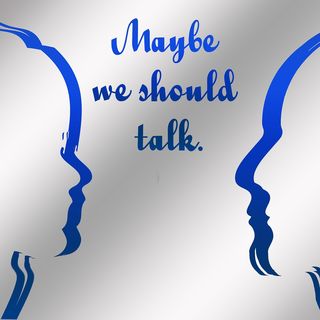Coronavirus Disease 2019
The Fact-Centered vs. The Feeling-Centered Person
A debate in the time of coronavirus.
Posted March 29, 2020 Reviewed by Kaja Perina

Long before the coronavirus, America was as polarized as I recall in my lifetime. Even this pandemic, unlike previous disasters, which pulled people together, is also polarizing: some push to flatten the medical curve first while others feeling the cost is too great.
Fair-minded consideration of diverse views is central to solving problems, indeed to a civilized society's continuation. To that end, I recently posted a debate on the primacy of the medical versus economic coronavirus curves, inviting readers to ask themselves if they were able to remain fair-minded in considering both positions.
Yesterday, I had a conversation that illuminated another core difference among people: fact-centered and feeling-centered. I hope that by presenting a paraphrase of that conversation here, it will provide another opportunity to self-assess openness to differing but responsibly held positions.
I’ve tried to reproduce my conversation partner's core words and phrases verbatim.
Feeling-centered: In deciding wisely, it's all about the feeling, the cosmic feeling. Otherwise, you’re tone-deaf to what really matters.
Fact-centered: So for you, analysis and factual knowledge are secondary?
Feeling-centered: Right. Wise decision-making is ultimately fostered by the divine, the spirit within us that recognizes our interconnectedness on the planet. We are of one.
Fact-centered: But rational analysis is the necessary precursor to good decisions even those based on gut. Certainly, our decisions shouldn't be based on some "divine" deity.
Feeling-centered: I’m not saying there’s a deity, some omniscient, omnipotent, anthropomorphic entity guiding us from the heavens. I’m saying that decision-making’s primary driver should be love, the spirituo-ethical; that’s the Goddess within each of us.
Fact-centered: My “God within me” says that decisions can be wise only through solid a priori thinking and often, analysis of data. Can you really dismiss that approach?
Feeling-centered: Think of all the bad decisions that rational analysis has yielded. How many drugs passed a decade of rational and empirical analysis and ended up having more side effects than main effects, let alone were cost-effective. If the guiding principle were cosmic caution rather than the hyper-rational, let alone profit potential, which leads to cutting corners, we’d be healthier. And that’s not a mere abstraction: Every human life foreshortened means unnecessary pain, deprivation of life’s beauties, and family and friends bereft.
Fact-centered: So, if you had your way, we would elongate drug development from the already long decade and billions of dollars? Of course, there’s no perfect prediction, but we must think probabilistically.
Feeling-centered: You place too much faith in prediction. It fails, even with something as circumscribed as picking which stocks will go up. Do you recall the study that found that financial experts did no better than monkeys?
Fact-centered: Stock picking is much more difficult than you imply. It requires analysis so accurate, so prescient, that it beats the collective wisdom of the world’s investors, which is what a stock’s current price represents. Let me ask you a question: If there were two parallel worlds: One relied primarily on feeling, the other on facts. Don’t you think the latter would yield greater net happiness?
Feeling-centered: No. Those high-IQ people you so admire include Jonestown's Jim Jones, drug kingpin Pablo Escobar, Theranos' Elizabeth Holmes, and Ted Kaczynski, the Unabomber, who graduated from Harvard at 16.
Fact-centered: Cherry-picking isn’t valid. The definitive study of genius—Terman’s “Termites”—who had an average IQ 151 and were studied from childhood, found:
At midlife, 70 earned listings in American Men of Science, and 3 were elected to the National Academy of Sciences. Ten had entries in the Directory of American Scholars, and 31 appeared in Who's Who in America ... Nearly 2.000 scientific and technical papers and articles and some 60 books and monographs in the sciences, literature, arts, and humanities have been published. Patents granted amount to at least 230. Other writings include 33 novels, about 375 short stories, novelettes, and plays; 60 or more essays, critiques, and sketches; and 265 miscellaneous articles on a variety of subjects. The figures on publications do not include the hundreds of publications by journalists that classify as news stories, editorials, or newspaper columns, nor do they include the hundreds, if not thousands, of radio, television, or motion picture scripts.
Feeling-centered: Every bone in my body feels that intellect is overrated and heart is underrated.
The takeaway
We all come to conversations with a set of deeply held core beliefs. If major problems are to be solved, if friendships other than the clonal are to be made and sustained, we must listen better and be more open-minded to responsibly held positions other than our own. That's easier said than done but it’s not hyperbolic to assert that the future of the world may depend on it.
I read this aloud on YouTube.




